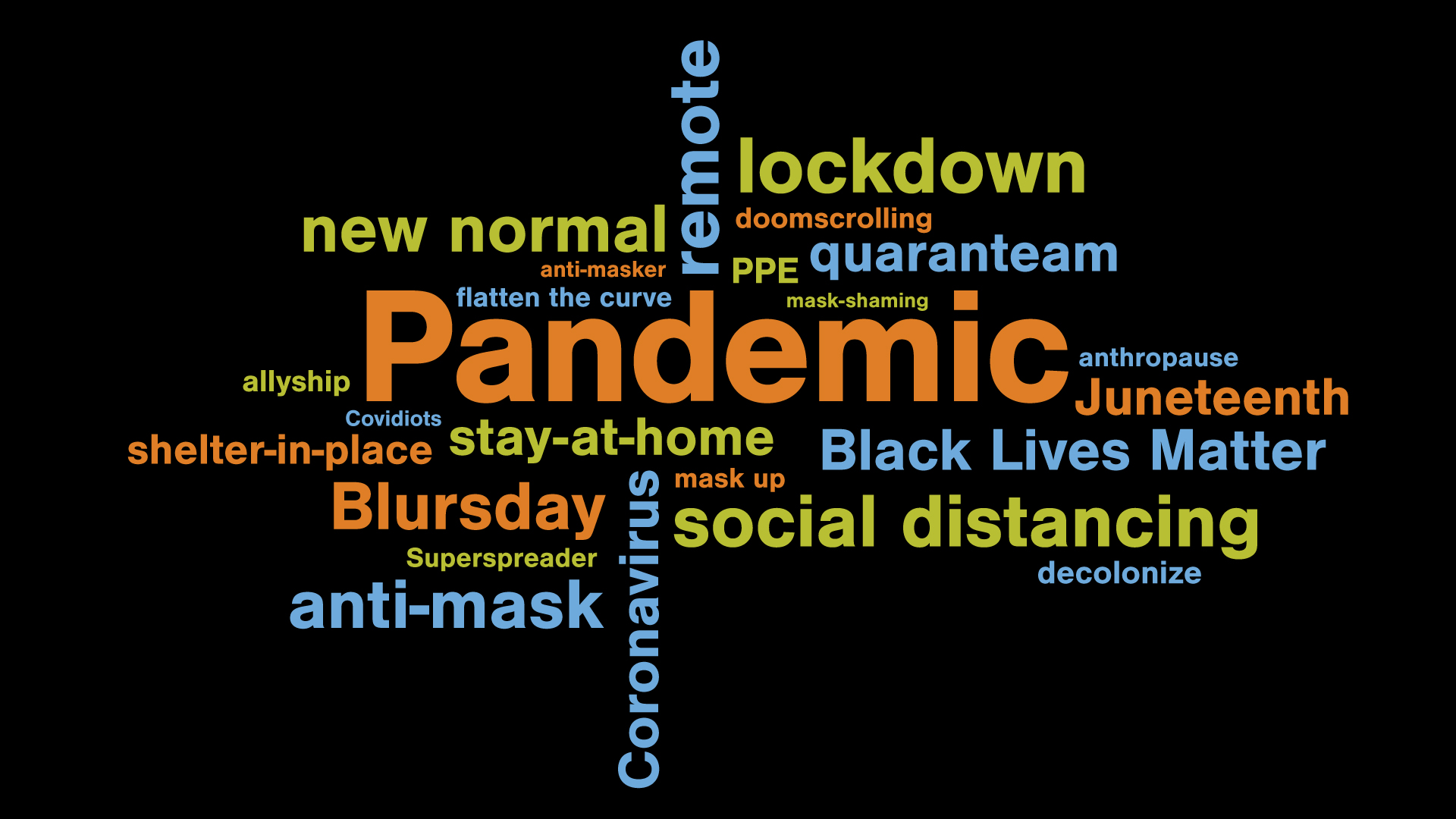Each year the team of lexicographers, linguists and language technologists at Oxford Languages, the publisher of the Oxford English Dictionary, collect and explore “evidence-based data” to understand the year’s developments in language.
The most popular outcome from this linguistic exploration is “The Oxford Word of the Year,” with recent gems like unfriend (2009), selfie (2013), post-truth (2016) and climate-emergency (2019). Based on usage evidence drawn from Oxford’s continually updated corpus of more than 11 billion words, the company, in “normal” years names a single word the winner. But, as you already know, 2020 was, well, “unprecedented.”
Instead of naming a single word the winner for 2020, Oxford Languages highlighted the pandemic’s swift and widespread impact across our entire language.
“Some might say there are no words to sum up the events of 2020. At Oxford Languages, we think there are too many,” Oxford University Press wrote in a press release, explaining how an unprecedented year caused it to break from tradition and highlight several words instead of just one. “It quickly became apparent that 2020 is not a year that could neatly be accommodated in one single ‘word of the year.’”
I think it’s telling that even my 3-year-old, with his limited vocabulary, newly uses the words pandemic, coronavirus, social distance, mask up, work from home, Black Lives Matter and Tiger King (okay, that one’s a mom fail) this year. Across the board, NST drove updates to client content to reflect these new terms, and others, and how they relate to our client’s businesses, customers, employees and messaging. If, as a company, you haven’t evaluated your messaging through the lens of the pandemic, that’s a miss. Check out our agency President and Partner’s recent post on leveraging the lessons of the pandemic for future planning here.
“I’ve never witnessed a year in language like the one we’ve just had,” said Casper Grathwohl, the president of Oxford Dictionaries. “The Oxford team was identifying hundreds of significant new words and usages as the year unfolded, dozens of which would have been a slam dunk for Word of the Year at any other time. It’s both unprecedented and a little ironic – in a year that left us speechless, 2020 has been filled with new words unlike any other.”
The Oxford Word of the Year is supposed to reflect the ethos, mood, or preoccupations of that particular year, and to qualify must have lasting potential as a word of cultural significance. In 2020, many words checked those boxes. Let’s take a look at some of the highlights:
- “Pandemic” – Use of the term increased more than 57,000% since 2019.
- “Coronavirus” – a word coined in 1968, but rarely used outside of medical contexts. By April, “Coronavirus” had become one of the most common nouns in English.
- The pandemic turned once-obscure public-health terminology like “PPE,” “social distancing,” “Superspreader” and “flatten the curve” into household terms, and made words and phrases like “lockdown,” “new normal,” “shelter-in-place” and “stay-at-home”
- It also altered usage patterns for basic words like “remote” and “remotely.” Previously, the most common words to appear alongside “remote” were “village,” “island” and “control.” This year, Oxford says they were “learning,” “working” and “work force.”
- Phrases including mask up, anti-mask, anti-maskerand mask-shaming were “among the proliferation of words reflecting attitudes towards the issue of mask-wearing.”
- Oxford also highlighted some lighthearted new terms, like “Covidiots” (we all know a few), “Blursday” (the way the days of the week start to blur together), “quaranteam” (your quarantine squad) and “doomscrolling” (consuming an endless procession of negative online news, to the detriment of your mental health).
- “Black Lives Matter,” “Juneteenth,” “decolonize” and “allyship,” were just some of the words and phrases relating to social justice, which notably surged, albeit not to the extent of the pandemic terms.
- With the focus on the pandemic, media coverage for climate change fell significantly, however, the result was a new word – “anthropause,” referring to “the global slowdown of travel and other human activity and the subsequent welcome consequences, such as a decrease in light and noise pollution.”
What new words did you find yourself using in 2020? Did Oxford miss any? Contact us and let us know your favorites.

